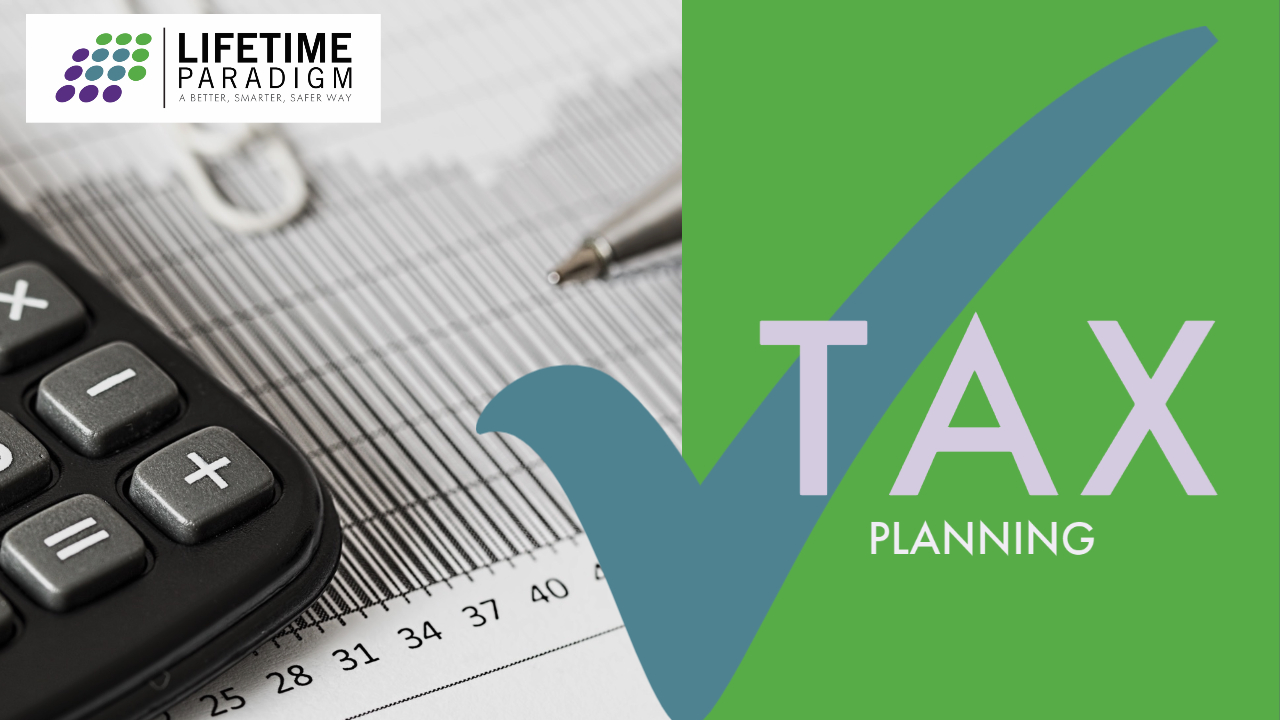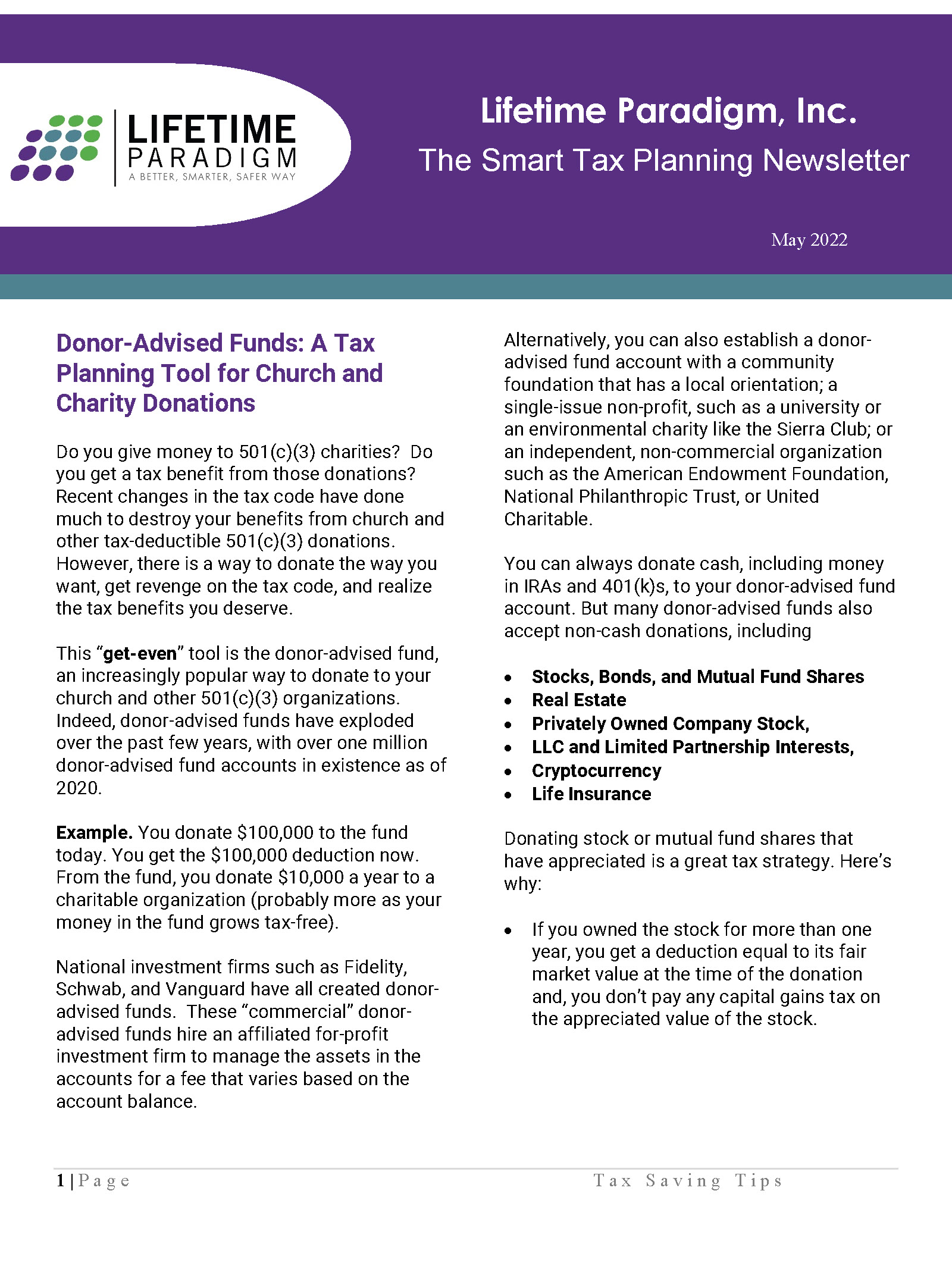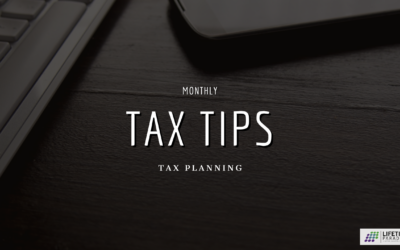Tax Planning
The Smart Tax Planning Newsletter May 2022
Every month we provide you with a fairly detailed review of several Important Tax Topics. Scan through the highlighted topics noted below.

In This Month’s Newsletter We Review:
Donor-Advised Funds: A Tax Planning Tool for Church and Charity Donations
Donor-Advised Funds: A Tax Planning Tool for Church and Charity Donations
Do you give money to 501(c)(3) charities? Do you get a tax benefit from those donations? Recent changes in the tax code have done much to destroy your benefits from church and other tax-deductible 501(c)(3) donations. However, there is a way to donate the way you want, get revenge on the tax code, and realize the tax benefits you deserve.
This “get-even” tool is the donor-advised fund, an increasingly popular way to donate to your church and other 501(c)(3) organizations. Indeed, donor-advised funds have exploded over the past few years, with over one million donor-advised fund accounts in existence as of 2020.
Example. You donate $100,000 to the fund today. You get the $100,000 deduction now. From the fund, you donate $10,000 a year to a charitable organization (probably more as your money in the fund grows tax-free).
National investment firms such as Fidelity, Schwab, and Vanguard have all created donor-advised funds. These “commercial” donor-advised funds hire an affiliated for-profit investment firm to manage the assets in the accounts for a fee that varies based on the account balance.
Alternatively, you can also establish a donor-advised fund account with a community foundation that has a local orientation; a single-issue non-profit, such as a university or an environmental charity like the Sierra Club; or an independent, non-commercial organization such as the American Endowment Foundation, National Philanthropic Trust, or United Charitable.
You can always donate cash, including money in IRAs and 401(k)s, to your donor-advised fund account. But many donor-advised funds also accept non-cash donations, including
- Stocks, Bonds, and Mutual Fund Shares
- Real Estate
- Privately Owned Company Stock,
- LLC and Limited Partnership Interests,
- Cryptocurrency
- Life Insurance
Donating stock or mutual fund shares that have appreciated is a great tax strategy. Here’s why:
- If you owned the stock for more than one year, you get a deduction equal to its fair market value at the time of the donation and, you don’t pay any capital gains tax on the appreciated value of the stock.
Example. Dennis owns 1,000 shares of Evergreen stock that’s publicly traded on NASDAQ. He paid $10,000 for the stock back in 2010, and the shares are worth $100,000 today.
He establishes a donor-advised fund in 2022 and donates the stock.
He gets a $100,000 charitable deduction for 2022.
He pays no federal tax on his $90,000 gain.
Transferring Your Home to Your Adult Child
With today’s home prices and the crazy real estate market, it’s likely difficult for your children to buy a home. It’s conceivable that you are ready to move on from your existing home. If this true for you, consider the three options:
Option 1: Make an Outright Gift
Say you’re feeling so generous that you might just simply give your home to your adult child. What a deal for the kid! Tax-wise, if you make the gift this year, it will reduce your $12.06 million unified federal gift and estate tax exemption. To calculate the impact, reduce the fair market value of the home you would be giving away by the annual federal gift tax exclusion, which is $16,000 for 2022. The remainder is the amount that would reduce your unified federal exemption.
If you’re married, your spouse has a separate $12.06 million unified federal exemption. If you and your spouse make a joint gift of the home, each of your unified federal exemptions will be reduced. To calculate the impact, take half of the fair market value of the home minus the $16,000 annual exclusion. The remainder is the amount by which you would reduce your unified federal exemption. Ditto for your spouse’s separate exemption.
If your child is married and you give the home to your child and his or her spouse, you can claim a separate $16,000 annual exclusion for your child’s spouse. If you expect the home to continue to appreciate, getting it out of your estate by giving it away is a good estate-tax-avoidance strategy.
Option 2: Arrange a Bargain Sale
Say you’re feeling generous, but not so generous that you want to simply give away your home. Fair enough. Then, consider selling the home to your child for less than fair market value. For federal gift tax purposes, this is treated as a gift of the difference between the home’s fair market value and the bargain sale price. Tax-wise, this can work out okay as well.
Warning. Do not make a bargain sale or an outright gift of the home if you intend to continue living there until you die. In these scenarios, expect the IRS to argue that the home’s full date-of-death fair market value must be included in your estate for federal estate tax purposes, even if you were paying fair market rent to your child.
Option 3: Arrange Full-Price Sale with Seller Financing from You
The idea of giving your child a free house might be unappealing to you. Then, consider a 3rd option, selling the home to your child for its current fair market value with you taking back a note for a big part of the purchase price.
Assume you’re feeling a little charitable. If so, you can charge the lowest interest rate the IRS allows without any weird tax consequences. That’s called the “applicable federal rate” (AFR). AFRs change monthly in response to bond market conditions and are generally well below commercial rates. In May 2022, the long-term AFR, for loans of more than nine years, is only 2.66 percent (assuming annual compounding). The mid-term AFR, for loans of more than three years but not more than nine years, is only 2.51 percent (assuming annual compounding).
As this was written, the going rate nationally for a 30-year fixed-rate commercial mortgage was around 6.1 percent, while the rate for a 15-year loan was around 5.1 percent. So, a loan made in May 2022, you could take back a 30-year note that charges the long-term AFR of only 2.66 percent. Alternatively, you could take back a nine-year note that charges the mid-term AFR of only 2.51 percent. Either arrangement would be a money-saving deal for your child.
It’s important to note that there are MANY considerations about taxes and a host of other issues that could develop when implementing any of these strategies. As always, consult a qualified advisor to discuss the details of your situation before making any decisions.
Selling Your Appreciated Vacation Home?
The tax-code-defined vacation home rules come into play when you have both rental and personal use of a home. Thus, you can have tax-code-defined vacation homes in the city, in the suburbs, and in recreation areas. In other words, it does not matter where the home is located. It’s how it’s used, that’s what counts!
If you have no combined rental and personal use of the home, the rules are easy. The property is one of the following:
- Principal residence
- Second home
- Rental property
But when you have both rental and personal use of the home, your tax life gets more complicated because you have entered the tax code’s vacation home section. In this situation, the property in a more complicated way is one of the following:
- Principal residence
- Second home
- Rental property
If it’s a principal residence, then the $250,000/$500,000 home sale exclusion is available when you sell.
If it’s simply a second home, you can’t use the exclusion and you pay taxes at capital gains rates—and you may suffer the net investment income tax (NIIT) as well.
If it’s a rental, you face the capital gains rules, NIIT, unrecaptured Section 1250 gain taxes, and release of some (if grouped) or all (if not grouped) passive activity suspended losses. When you have rental use after 2008 and then convert the rental to your principal residence, you must use a rental/residence fraction to determine how you will be taxed.
It’s important to note that we have a number of strategies to defer and/or eliminate the taxes that could be incurred That said, the sale of any real estate is a significant endeavor and must be well thought through. Once again, before you make any decisions, talk with a qualified professional and get personal advice.
SERVICES WE OFFER RELATED TO THIS TOPIC
The information contained in this post is for general use and educational purposes only. However, we do offer specific services to our clients to help them implement the strategies mentioned above. For specific information and to determine if these services may be a good fit for you, please select any of the services listed below.
The 4x4 Financial Independence Plan ˢᵐ
The Smart Tax Minimizer (For Consumer and Home-Based Businesses) ˢᵐ
The Smart Tax Planning System for Business Owners ˢᵐ
Coaching and Consulting


Big Tax Changes to Know for 2024
Financial Guides2024 has brought some big tax changes with it. It’s essential to stay informed about these...
The Smart Tax Planning Newsletter March 2024
Tax PlanningIn This Issue: IRAs for Young Adults Get Up to $32,220 in Sick and Family Leave Tax Credits New Crypto Tax...
2024 Key Planning & Investment Deadlines for Q2
Financial GuidesSpring is coming and to keep you financially organized for Q2, we are providing you with our Spring...






